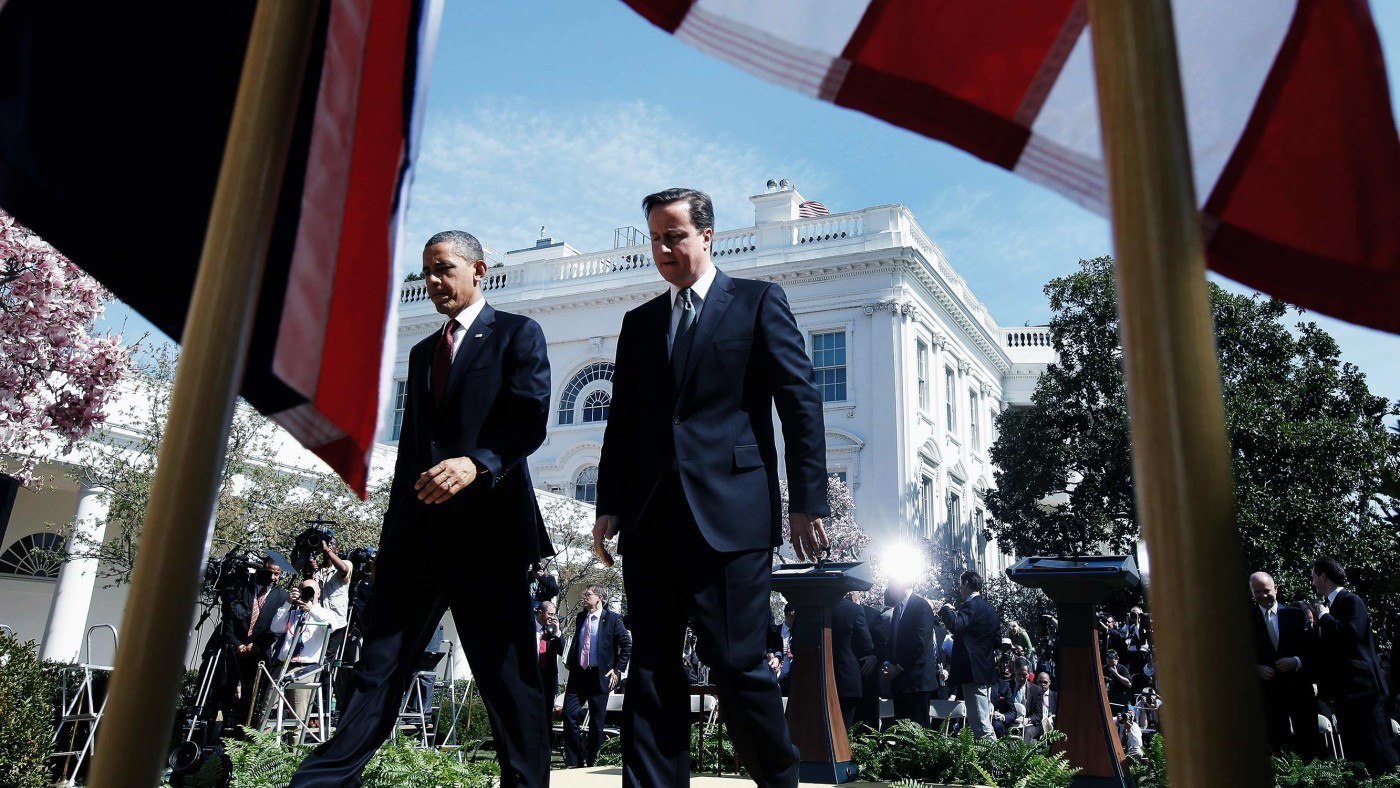Jeb Bush became the latest leading Republican to warn President Obama against entering the Brexit debate. In response to a question from me yesterday, during a rally that the former Governor of Florida was holding in Greenville, South Carolina, Mr Bush said that the president had “a tendency to opine on things he shouldn’t”. “Irrespective of what I personally believe, this is a decision for the people of your country,” he continued. Whatever Britain decided it would not affect the quality of the relationship between America and Britain; a relationship that hadn’t just been beneficial for the two countries but “for the whole world”.
Governor Bush then criticised Mr Obama’s decision to return the bust of Winston Churchill to the UK. After an extended tribute to the leadership qualities of Winston Churchill – who he described as “the greatest man of the twentieth century” – America, he concluded, needed to restore the US-UK relationship and not for sentimental historical reasons but because of joint security interests. Governor Bush has previously expressed support for the US forging a new US-UK trade arrangement if Britain voted to leave the EU.
A hotter prospect for the Republican nomination – Senator Marco Rubio – has also warned the White House against interfering. Speaking to The Times last November, the Cuban American from Florida said: “I don’t think it’s proper for an American president to tell the UK what is right for them, any more than it would be right for the UK to tell us that they wanted us to sign Nafta [the North American Free Trade Agreement] or some other agreement… Part of us being a strong ally [of Britain] is for us to respect its sovereignty and its right to make its own decisions.”
Another Republican contender has gone further. Addressing the Heritage Foundation, Senator Ted Cruz of Texas explained that he thought a US-UK trade deal might be superior to the TTIP being negotiated with the EU: “An agreement between the U.S. and the U.K. would be an opportunity to mutually deregulate our economies—in contrast to the TTIP, which is proving an exercise in “harmonizing” regulations.”
As I explain in today’s Wall Street Journal (no paywall for two weeks!), President Obama is recommending to the people of America an arrangement that he knows the American people would not accept. I then quote the YouGov polling for CapX that appeared on this site on Monday: “Less than a third of Americans would support open borders with Mexico, a joint U.S.-Canadian-Mexican supreme court to decide human-rights questions or a pan-American environmental agency to govern fishing policy. But as an EU member, Britain has to endure the equivalent of these policies.” Review the polling here.
President Obama is, unquestionably, a respected figure in Britain and the PM will, no doubt, deploy him to reinforce his “Project Fear” and the idea that Britain is somehow a feebler nation than America, Australia, Canada, New Zealand, Japan or other self-determining nations. But Mr Obama’s presidency is drawing to a close and it is worth noting that many contenders to be his successor are at least sympathetic to the argument with which I end my WSJ piece:
“Once outside the EU and disentangled from the red tape of Brussels, Britain also will be able to form its own free-trade agreements and to implement a points-based immigration system, choosing only the talented, skilled immigrants that the U.K.’s economy needs. Britain after Brexit, in other words, will be a stronger Britain—and the U.S. should want strength for its most steadfast global ally… The U.S. needs allies that are as nimble and fast-moving as global events. Multinational bodies like the EU and the U.N. only ever move as quickly as the slowest country in the convoy. The U.S. needs its allies to be strong and independent—not submerged within a clunky, clumsy EU that idly declares its distant hope for a unified front in matters of defense and foreign policy.”
And, in case you are interested: Mr Trump’s views on Brexit are not known at this time.


